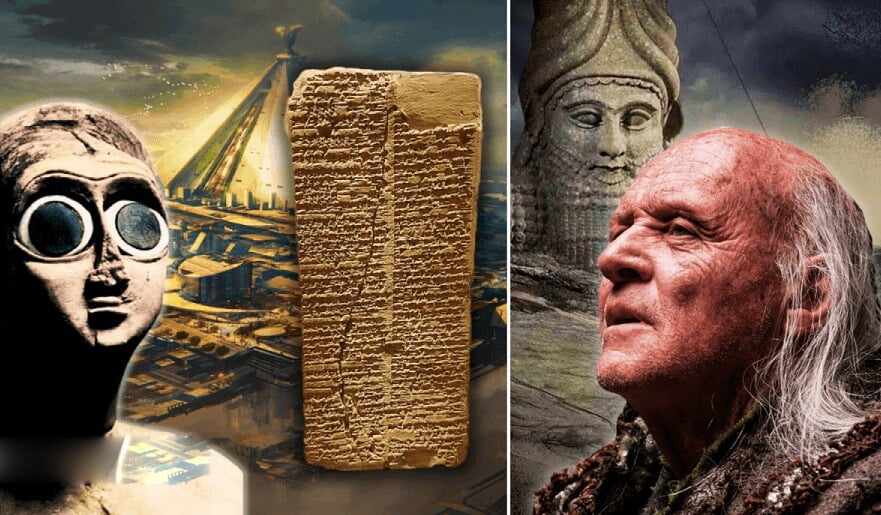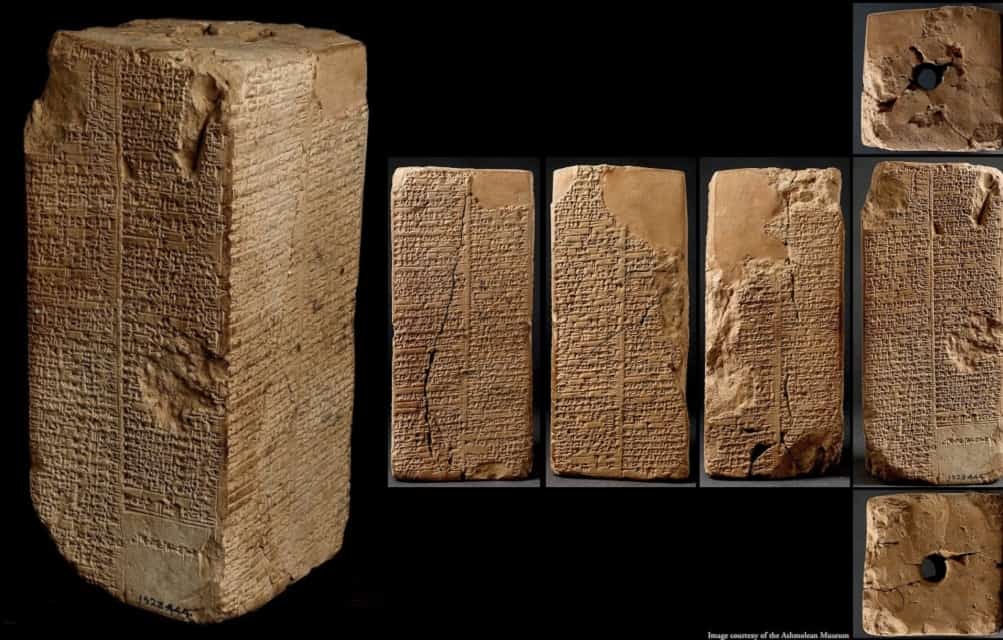
Sumerian And Biblical Texts Claim People Lived For 1000 Years Before Great Flood: Is It True?
Many ancient texts, including those in Sumerian, Hindu, and Biblical languages, describe people who have lived for thousands of years.
According to a study published in Nature, the most significant number of years a human can live is between 120 and 150 years, but not more than this “absolute limit” on the human life span. The Bowhead whale is the longest-living mammal on the planet, with a lifespan of up to 200 years. Interestingly, ancient Sumerian, Hindu, and Biblical literature depict people who lived thousands of years ago.
According to Biblical records, those interested in ancient history may be familiar with Methuselah, a guy who lived 969 years. He is described as the son of Enoch, the father of Lamech, and the grandfather of Noah in the Book of Genesis. His Bible tale is significant since he is part of the genealogy that connects Adam and Noah.

According to most Bible interpretations, Methuselah was approximately 200 years old when his son, Lamech, was born and died sometime after Noah’s Flood. Methuselah became a part of popular culture due to his advanced age, and his name is commonly employed when alluding to the advanced age of individuals or things.
Not only is this Biblical figure remarkable because of his lifespan, but he is also significant for a variety of other reasons. Methuselah was the seventh antediluvian patriarch, according to Genesis. The following is taken from the Bible’s King James Version:
21 And Enoch lived 65 years and gave birth to Methuselah:
22 And Enoch walked with God for three hundred years after he had Methuselah and had sons and daughters:
23 And Enoch lived for three hundred sixty-five years in total:
24 And Enoch walked with God, but he was no longer with God since God had taken him.
25 And Methuselah lived for a hundred and seven years and gave birth to Lamech:
26 Methuselah lived for seven hundred eighty-two years after Lamech was born, and he had sons and daughters:
27 —Genesis 5:21–27, Bible. And all the days of Methuselah were nine hundred sixty-nine years, and he died.
In Genesis, Methuselah is named the son of Enoch and the father of Lamech, who in turn was the father of Noah, whom he fathered at the age of 187. His name has become a generic term for any aged creature, with statements like “having more years than Methuselah” and “being older than Methuselah” being typical.
According to the Old Testament, Methuselah is said to have perished in the year of the Great Flood. The Masoretic, the Septuagint, and the Samaritan Torah are three manuscript traditions that offer differing chronologies.
Methuselah was 187 years old when his son was born, according to the Masoretic, an authorized Hebrew and Aramaic text of the Tanakh for Rabbinic Judaism. At the age of 969, he perished in the year of the Flood. Methuselah was 187 years old when his son was born and died at 969, six years before the Great Flood, according to the Septuagint, also referred to as the Greek Old Testament, the earliest existing Greek translation of the Old Testament from the original Hebrew.
Methuselah was 67 years old when his son was born. He died at the age of 720 years; according to the Samaritan Torah, a copy of the first five books of the Hebrew Bible was written in the Samaritan alphabet and used as scripture by the Samaritans.
Longevity is almost certainly addressed in other ancient books as well. The most contentious old Sumerian document gives the names of eight ancient monarchs who dropped from the sky and ruled for more than 200,000 years. According to the narrative, a group of eight intelligent creatures controlled Mesopotamia for 241,200 years before the Great Flood.

This remarkable text was discovered on a 4,000- year-old clay tablet by German-American researcher Hermann Hilprecht around the twentieth century. At least 18 similar cuneiform tablets were found by Hilprecht (c. 2017-1794 BCE). They weren’t identical, but they shared information believed to have come from a single Sumerian source. More than a dozen copies of the Sumerian King List from the 7th century BC have been discovered at Babylon, Susa, Assyria, and the Royal Library of Nineveh.
“After the kingdom descended from heaven, the kingship was in Eridug,” the Sumerian List said before the deluge. Alulim became king of Eridug and ruled for 28800 years. For 36000 years, Alaljar ruled. Two monarchs ruled for 64800 years. The kingship was then relocated to Bad-tibia after Eridug collapsed.
Some authors believe that humans lived for about a thousand years before God curtailed their lifespan following the deluge (Genesis 6:3) “My Spirit shall not strive with man forever, because he, too, is flesh; but, his days shall be one hundred and twenty years,” the LORD said.
Was it indeed an act of God that humans’ lifespans were shortened? Is it possible that there is another, a more glorious explanation that claims that beings not from Earth walked on our planet in the days of Methuselah?
* * *
